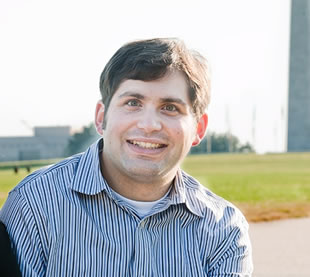
Integrating Systems into Daily Life that Promote Good Executive Function Skills in Children and Teens

Dr. Carey Heller: Clinical Psychologist in Bethesda, Maryland specializing in ADHD/executive functioning
Executive functioning is a term that has become used in popular culture within the past few years with increasing frequency. This term refers to a set of mental processes that are used in planning, organizing, getting started, following through, and completing tasks. Attention and working memory skills are also connected to this. Another way to think about executive functioning is that it is like the case manager of one’s mind that helps keep everything organized and allows a person to get tasks completed.
Time management and organization skills are among the more tangible components of executive functioning, and the ones that many individuals with Attention-Deficit/Hyperactivity Disorder (ADHD) or executive function deficits struggle with. Therefore, this article will focus on ways that you as parents or caregivers can help your children and teens to develop strong executive function skills.
- Just because you keep a calendar or use a task list in a specific way and find it helpful does not mean that your child or teen functions in the same way. Thus, it is important to explore ideas for keeping better track of events and tasks with your child or teen rather than simply imposing a system on them.
- Many children and teens spend considerable time on tablets or smartphones. If they have these devices and use them a lot anyway, helping them to use calendar and task list apps may be beneficial. Here are some suggested ones:
- Calendar/Calendar combined with task list:
- Apple devices: standard ical app; iCalendar, Fantastical 2, Calendars5, gTasks (all combine calendar and task list, but the way they are viewed together varies greatly).
- Android devices: Google Calendar, gTasks.
- Task lists (in addition to the ones listed above):
- Apple devices: Reminders.
- Apple and Android devices: Google Keep, Do!, Wunderlist.
- Calendar/Calendar combined with task list:
- Make keeping organized and being aware of their schedule something that you begin at a young age. For toddlers and younger children, making a picture calendar of activities may be useful. For older children or teens, having a weekly schedule written out could be helpful. Alternatively, for older children and teens who have frequent access to a tablet or smartphone, if you use an electronic calendar, use a shared family calendar and add events to the calendar on your child’s or teen’s device. Even if they are not willing or able to add events themselves yet, having events for them to check would be a good start.
- Large whiteboards or other similar items can be helpful, provided that children and teens are able to remember to check them regularly.
- In terms of physical organization, keep systems as simple as possible and try to make them natural when feasible so children and teens do not feel forced to take lots of extra steps. For example, see where your child would naturally take off and put their shoes when they come home. If it is in a front hall, you could get a bin for them and they could then always strive to put their shoes in that bin. Or if a child or teen puts his or her shoes in random places, help them to think of a logical place for them and put a bin or other storage item in that specific place for them.
- If you have a child or teen who frequently loses things such as a watch or wallet, help them to determine a good place to put it, such as on a dresser or nightstand in a specific place. One could have a small bin for these items, or if need be, put sticky notes initially where each item should go on the dresser.
This list of ideas is certainly not exhaustive. Rather, it is intended to provide a few suggestions and get you thinking for yourself as to what specifically you can do to help your child or teen develop stronger executive function skills.
Copyright 2018 Carey A. Heller, Psy.D.
*Disclaimer: The previous information is intended as general guidance based on my professional opinion, does not constitute an established professional relationship, and should not replace the recommendations of a psychologist or other licensed professional with whom you initiate or maintain a professional relationship*



Engage us on Facebook
Follow us on Twitter
Tweets by @mymcmedia